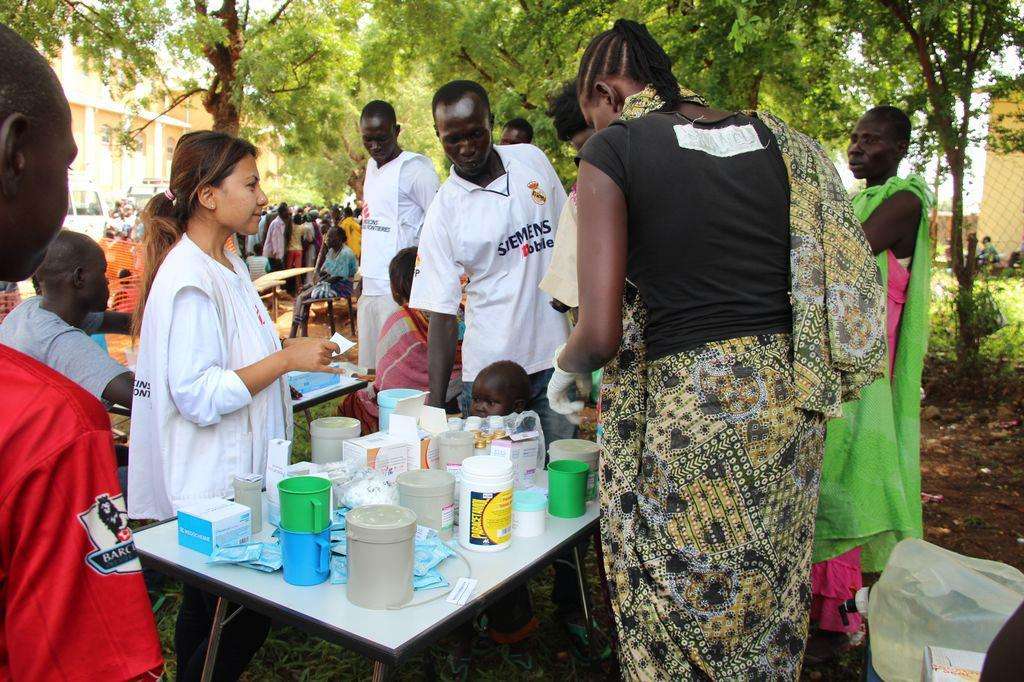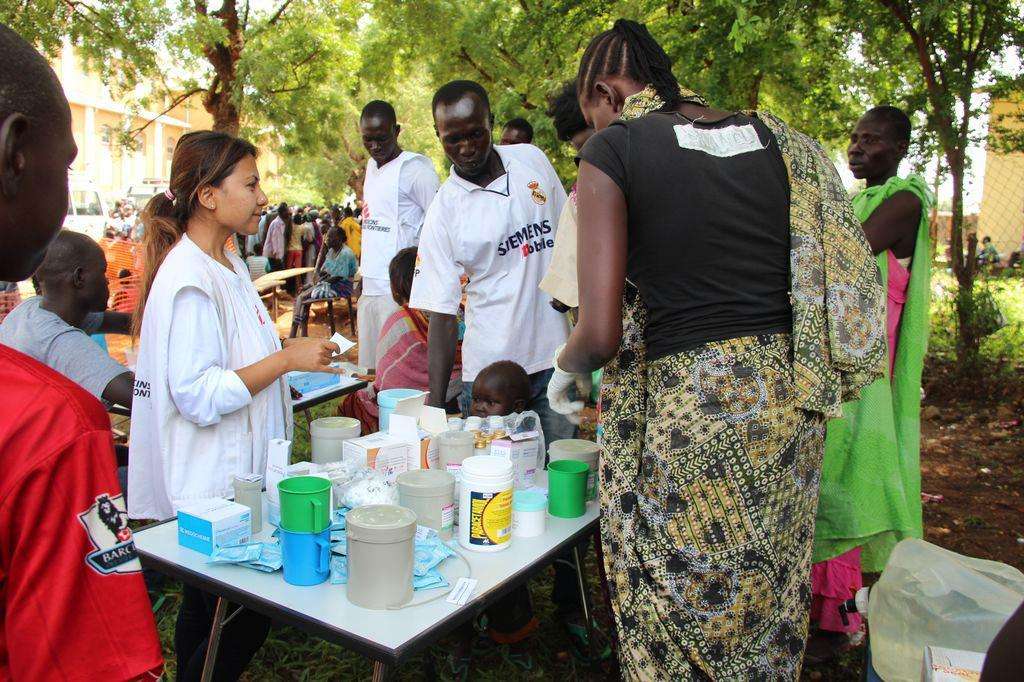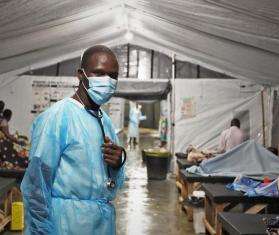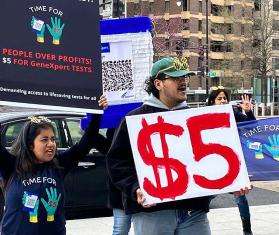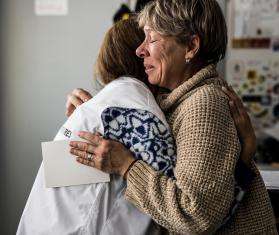In the week following a recent round of fighting in Juba, South Sudan’s capital, Doctors Without Borders/Médecins Sans Frontières (MSF) teams treated more than 2,700 patients in four clinics across the city. The organization has also been supplying clean drinking water in Juba and performing surgeries for people more seriously wounded during the violence.
On July 12, MSF opened a clinic at the St. Theresa Church in the Kator neighborhood, where thousands of people were taking refuge. Most people have now left the church and many have gone home to Gudele, where MSF's two clinics are now even busier than they were last week. At its fourth clinic, at the Don Bosco Church in Gumbo, MSF is providing medical care and distributing relief items such as bed nets, blankets and cooking kits.
"The majority of our patients are women and children," said Maria Guevara, MSF Medical Coordinator. "With reduced access to food, shelter and water, these groups are even more vulnerable, especially pregnant women and children under five years of age. Our teams could not have coped with the influx of patients without the hard work and dedication of the South Sudanese staff who, despite the insecurity, came to work for us to care for their communities."
Read: Responding to Medical Needs After Intense Fighting in Juba
The main conditions that people required emergency treatment for in the initial days of the fighting included gunshot wounds and injuries sustained as they fled. People continue to need medical care for malnutrition, malaria, diarrhea, skin infections, and respiratory tract infections that they developed when they were forced from home and had to sleep outside in the bush.
Cicilia, a mother of five, brought her baby to MSF's clinic at the St Theresa Church for a malaria test: "We stayed at home for eight hours when the fighting was strong and then left as soon as we could,” she recounts. “We have been sleeping outside ever since. How am I going to feed my family? How will we live? Everything is gone."
Though the fighting has largely abated, the threat to public health has not passed. Suspected cholera cases have already been reported in Juba, making the supply of clean drinking water even more important, especially now, in the rainy season. MSF is trucking in water to Gudele and St. Theresa and will supply other parts of the city as needed. MSF will also support the Ministry of Health with its cholera response by treating patients and managing a laboratory to test suspected cases.
Read: "Our Patients Are Telling Us Terrible Stories" in Juba
This week MSF started providing surgical care for people who were more seriously wounded. The first five patients have been operated on. More than 20 patients are scheduled for operations in the coming days.
The violence could have a longer-term mental health impact as well. MSF has already treated hundreds of patients who were contending with profound psychological consequences from recent events in the capital.
"Some patients turn up to the clinic crying," said Christina Dahl, an MSF nurse. "Others have general symptoms such as body pain and headaches, which are due to the physical and mental trauma they have endured. The sense of uncertainty about what the future holds only adds to the stress."
MSF has worked in what is now South Sudan for more than 35 years and continues to provide free health care in projects across the country, carrying out more than 60,000 consultations every month.
Read More about MSF's Work in South Sudan
